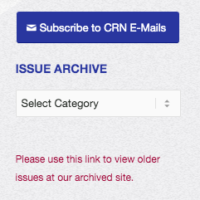Computing Researchers Respond to COVID-19: Running a Virtual Conference
In two weeks you are hosting 1,800 scientists, engineers, designers, and other experts at a five day conference but then the U.S. Centers for Disease Control and Prevention suddenly encourages Americans to practice “social distancing” measures to prevent the further spread of COVID-19. What do you do?
You move it online.
That is what the IEEE VR conference chairs decided to do last month, led by Blair MacIntyre, a professor in Georgia Tech’s School of Interactive Computing and IEEE VR conference co-chair, and Kyle Johnsen, an associate professor in the University of Georgia’s College of Engineering, when they transitioned the IEEE VR 2020 Conference to an all-virtual event. Working non-stop for two weeks, with the help of the entire conference committee and support from Mozilla and dozens of volunteers, they pulled together the technology to support a full scale virtual conference.
“We were planning on a small experiment with online attendees to investigate the use of VR to make conferences more accessible and sustainable. Suddenly we needed to ramp up to accommodate everyone across all traditional conference activities,” MacIntyre said.
The entire five-day event was done using a combination of commercial (Slack, Zoom, Sli.do, Twitch) and custom services (especially for video streaming), with a social virtual experience hosted on a custom installation of Mozilla Hubs, an online platform for social VR experiences. We chose Hubs because it is web based and open-source, allowing it to be easily customized and accessible from almost any device (VR or not) using a modern web browser.
IEEE VR marks the first time that a major academic conference of this scale (almost 2000 participants) moved online and depended solely on a virtual environment platform to replicate both the 1:1 and social networking sessions that are an essential part of conferences.
If you are considering moving your conference online, here are some tips from Blair:
- If you want to consider Mozilla Hubs, you should email hubs@mozilla.com. Mozilla devoted significant resources to help run IEEE VR, and has learned a lot about using their platform for these sorts of events.
- To support talks with no public streaming, Zoom or other video conferencing services may be fine. Just buy the big webinar versions. There were some issues with streaming Zoom to Twitch when we used it, but you could try doing that. If you have the people and machines on a network, you could run your own OBS machines to make the streams more reliable. Or use something like restream.io, which will let you distribute to multiple platforms.
- Much of the interactive stuff (posters, etc) leveraged Hubs, and because Hubs spaces are currently limited to small groups of 20-25 people, replicated the kind of small group discussions we wanted these parts of the program to have.
- If you decide to try and use social spaces for interactive parts of the program, plan ahead to recruit plenty of volunteers to act as helpers and moderators. Do not underestimate the number of people needed to make these spaces run smoothly, nor the time taken to train everyone.
- To do video co-watching in Hubs, we had to run our own media server. This added to the complexity and cost, but is possible if you need to. Companies such as PaperSpace.com and ServerRoom.net are ones we tried out for the conference; we used ServerRoom.net for our video server.
- We used Slack to communicate messages, but if you choose to use it make sure you remind people to sign up for it so they don’t miss messages.
As a summary, contact Mozilla if you want to use Hubs, but you can do the basic stuff pretty easily with Zoom. If you want to stream out to Twitch, prepare for significant work and investment.
At the Computing Community Consortium (CCC) we know that everyone is dealing with a lot in these unprecedented times. We are continuing to work on behalf of the computing research community to catalyze research, but we also want to provide ways to help the community. This post is the first in a series of posts about ways computing researchers are using computing to adapt and help in these times. We hope you find something that may help you, either now or in the future.
Recent posts in the Computing Researchers Respond to COVID-19 Series:
- Voxel51; A Means of Tracking Social Distancing
- Operationalizing AI in Health
- Personal Protective Equipment Fabrication
- Decontaminating N95 Masks
- Staying Connected
- Misinformation
Additional posts will be published here.










